This Robot Took 1 Week To Made A Discovery That Would Take Human Months
Dhir Acharya - Jul 15, 2020
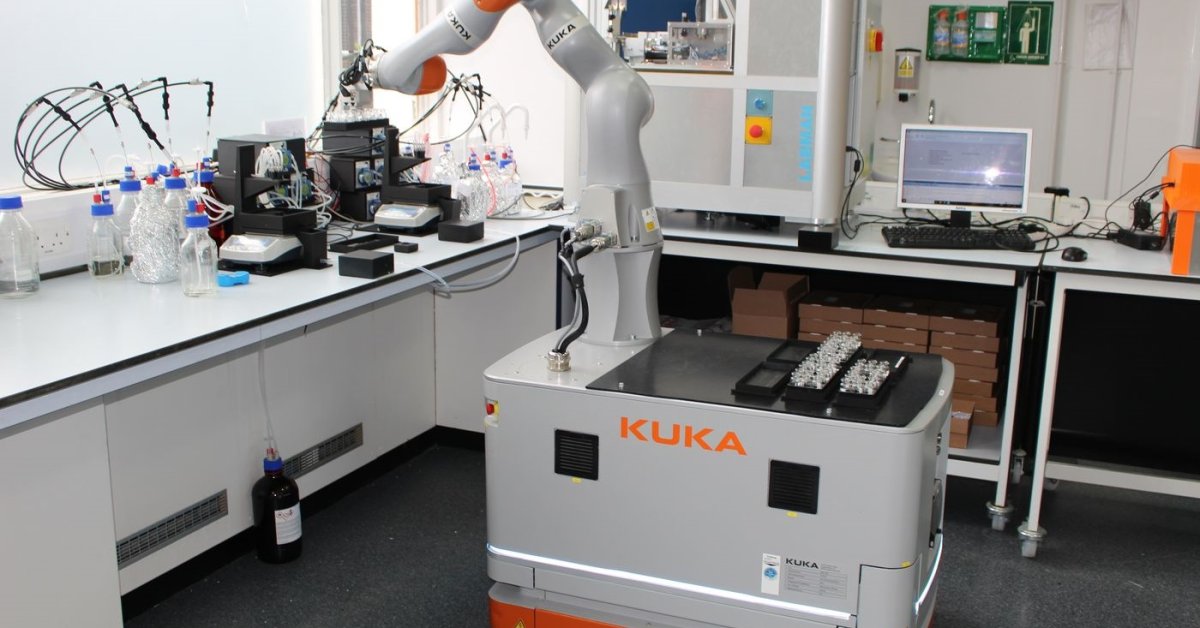
With technological advancement and the endless creativity of humans, robots are getting more and more sophisticated. They can now help in the lab.
- Cafe In Tokyo With Robot Waiters Controlled By Disabled Staff
- Best Robot Vacuums In India To Clean Carpets, Wood Floor And Pet Hair
- AI Is Being Trained To Identify Faces In The Dark Using Thermal Images
With technological advancement and the endless creativity of humans, robots are getting more and more sophisticated. As a result, they are joining in more areas of our lives than ever, from simple household tasks to complex assisting jobs at hospitals during the COVID-19 pandemic.
And now, a team of scientists in the US has developed a robot chemist that can work 1000 times faster than human chemists. This will help accelerate scientific research by helping researchers doing some tasks while they focus on more important ones.
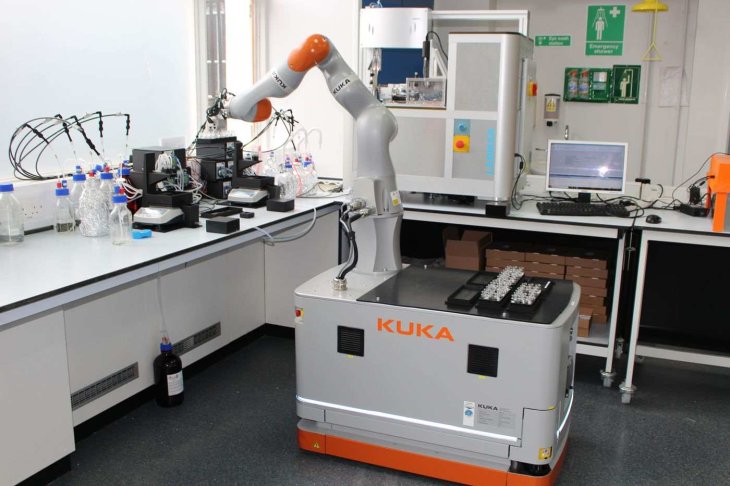
Some people may think that such robots will steal jobs from people around the work. That is not entirely true, robots may also give humans more free time so that people can take on more challenging, diverse, exciting roles that were previously set aside because they had to do required daily tasks.
Now, robots will not only take over those daily tasks but they can also work for longer hours without taking a break or getting bored.
The new robot, created by the University of Liverpool, doesn’t need a face. It uses touch feedback and laser scans to navigate. It features an arm that operates precisely, smoothly, and don’t pose any risks of mishaps that can happen with humans.
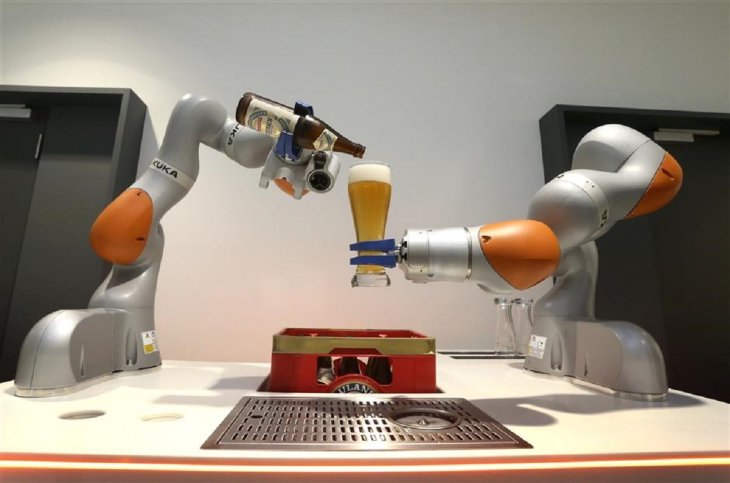
Even better, the robot is designed with a similar size to an actual human, meaning no changes are needed in the lab infrastructure. It can work continuously for 20 hours.
With such a working speed and duration, the robot has already helped human scientists discover a new photocatalyst within a week, which would have taken humans months. The robot was able to do this by going through 98 million distinct possible experiments. The newly found catalyst is 6 times more reactive than previously discovered ones.
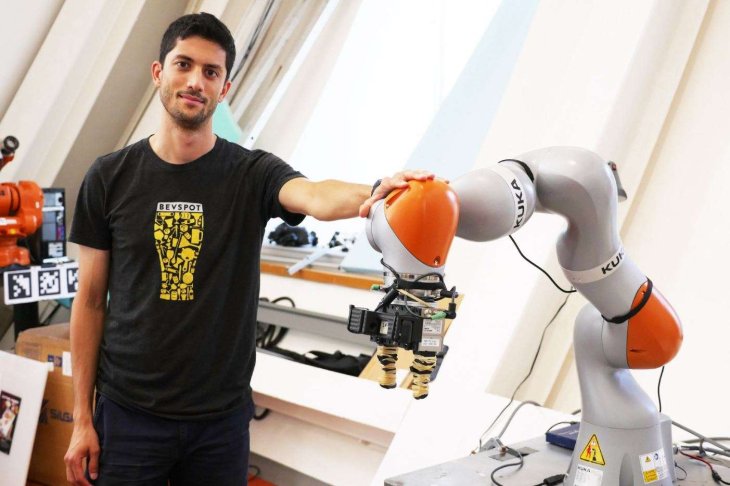
According to the study’s lead researcher Andrew Cooper, these robots will not take over humans’ jobs, but rather assist them and act as collaborative partners in the lab.
In the next step, the scientists will add voice recognition to this robot to allow for communication between human and robotic scientists. Cooper expects this will done in the next 18 months.
With all these developments in the robot industry, we have high hope that scientific fields will be boosted and there will be more discoveries made. Maybe we will even be able to test and come up with a COVID-19 vaccine or cure 1000 times faster than now.
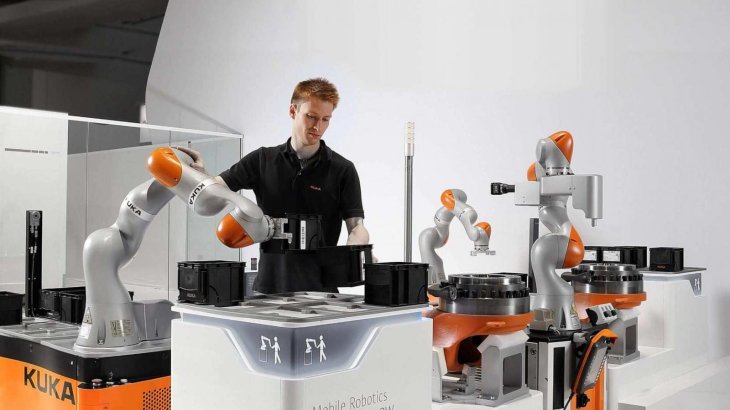
>>> This Robot Has Artificial Feathers And Flies Like A Real Bird
Featured Stories

Features - Jan 29, 2026
Permanently Deleting Your Instagram Account: A Complete Step-by-Step Tutorial

Features - Jul 01, 2025
What Are The Fastest Passenger Vehicles Ever Created?

Features - Jun 25, 2025
Japan Hydrogen Breakthrough: Scientists Crack the Clean Energy Code with...

ICT News - Jun 25, 2025
AI Intimidation Tactics: CEOs Turn Flawed Technology Into Employee Fear Machine

Review - Jun 25, 2025
Windows 11 Problems: Is Microsoft's "Best" OS Actually Getting Worse?

Features - Jun 22, 2025
Telegram Founder Pavel Durov Plans to Split $14 Billion Fortune Among 106 Children

ICT News - Jun 22, 2025
Neuralink Telepathy Chip Enables Quadriplegic Rob Greiner to Control Games with...

Features - Jun 21, 2025
This Over $100 Bottle Has Nothing But Fresh Air Inside

Features - Jun 18, 2025
Best Mobile VPN Apps for Gaming 2025: Complete Guide

Features - Jun 18, 2025
A Math Formula Tells Us How Long Everything Will Live
Read more

ICT News- Feb 10, 2026
Discord's Teen Safety Sham: Why This Data Leak Magnet Isn't Worth Your Trust Anymore
Cancel your Nitro, export your data, and move on before the next leak hits. Your personal information deserves better.

ICT News- Feb 08, 2026
Is Elon Musk on the Path to Becoming the World's First Trillionaire?
For now, the world watches as Musk's empire continues to expand into uncharted territory.

Mobile- Feb 11, 2026
Top 5 Cheap and Efficient Gaming Phones in 2026
These phones prove you don't need $1000+ for efficient gaming. The RedMagic 11 Air leads for pure power, while POCO options win on value.

ICT News- Feb 09, 2026
PS6 Rumors: Game-Changing Specs Poised to Transform Console Play
Keep an eye out for Sony's official reveals as we near what's ahead.
Comments
Sort by Newest | Popular